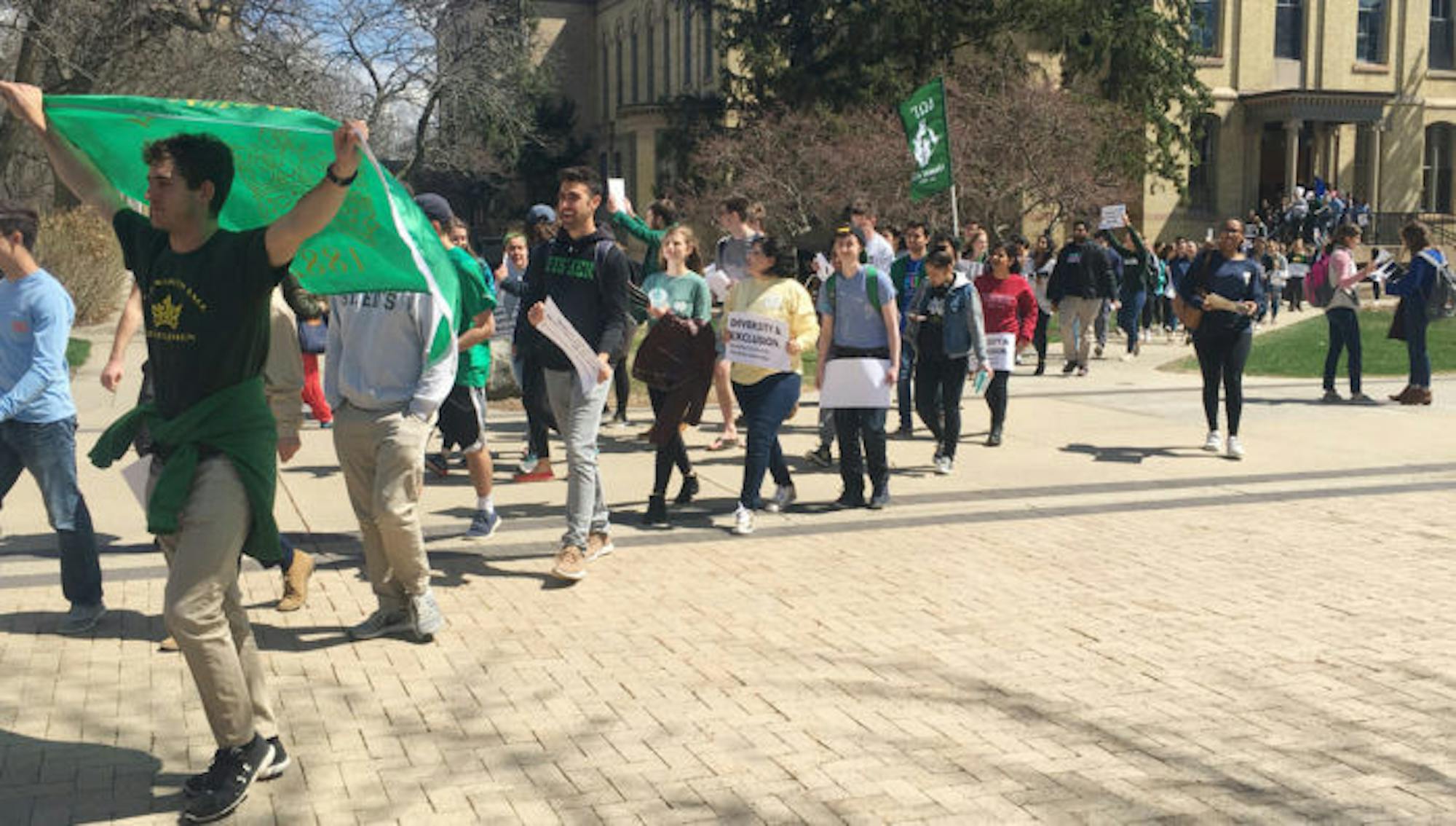During the last Hall Presidents Council (HPC) meeting, associate vice president of Residential Life Heather Rakoczy Russell walked hall presidents and vice presidents through an early draft of the on-off campus differentiation policy which is expected to come into effect in the fall of 2021, hall presidents said.
Last April, the Division of Student Affairs announced a list of proposed residential life updates created to incentivize Notre Dame students to remain on campus for their senior year. While the enhancements offered monetary incentives for on-campus seniors in addition to residential benefits for all student, the effort to differentiate on- and off-campus experiences drew widespread criticism across campus, resulting in a petition with 5,000 signatures and a protest outside the Main Building last spring. The original policy proposed that off-campus seniors would no longer be able to attend their former dorm’s dances without being invited by a current resident or participate in interhall sports.

According to a handout obtained by The Observer from multiple sources — which members of the HPC received during the meeting — the new policy aims to “provide for greater consistency across hall communities and to facilitate a clearer differentiation between the experience of those who live in a resident hall an those who have moved into the local community.”
The outline Rakoczy Russell gave to members of HPC may be subject to changes before Residential Life releases the final plans, hall presidents said, but the expected policy will give current residents priority in all hall events and activities.
While former residents may attend any events open to the entire campus, they may only come to hall events as a guest of a current resident and can only act as active participants in dorm events “by way of exception.” In order to grant these exceptions, off-campus students must contact their former rectors who will consult with their rector supervisor to determine whether an exception can be made, according to the handout.
In regards to interhall sports teams, priority will be given to on-campus residents before off-campus members can join, which will be overseen by hall athletic commissioners and rectors. Two rosters will be used for on- and off-campus students, the handout outlined, with the latter roster used only when there is extra space on-campus students did not fill.
In addition, off-campus students will be charged a flat rate of $5 per person per sport by RecSports in order to participate in interhall sports, off-campus students may not be captains and an internal B team may not consist of more off-campus members than on-campus members. Off-campus students may not be able to form their own teams, and off-campus students must consult with the captain and/or the rector if they want to play on the team, the handout said.
Hall presidents and vice presidents said they were encouraged to discuss the policy with their dorm members to get feedback on the changes before the official policy is announced, which may be directed to Rakoczy Russell.
The announcement of the differentiation policy last spring elicited numerous responses, with multipleLetters to the Editor, including a statement from the members of the 2018-2019 Hall Presidents Council. In a meeting hosted by the sophomore class in December, Rakoczy Russell addressed concerns regarding the proposed policy, and the plan continued to be a point of discussion in the 2020 student body government elections, with the newly elected juniors Rachel Ingal and Sarah Galbenski promising to take action against the policy once in office.
The University could not be immediately reached for comment at the time of publication.








